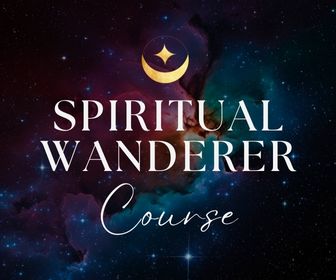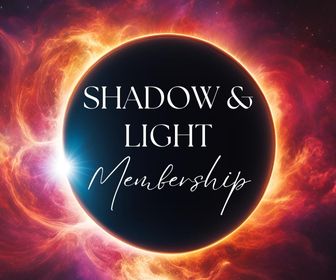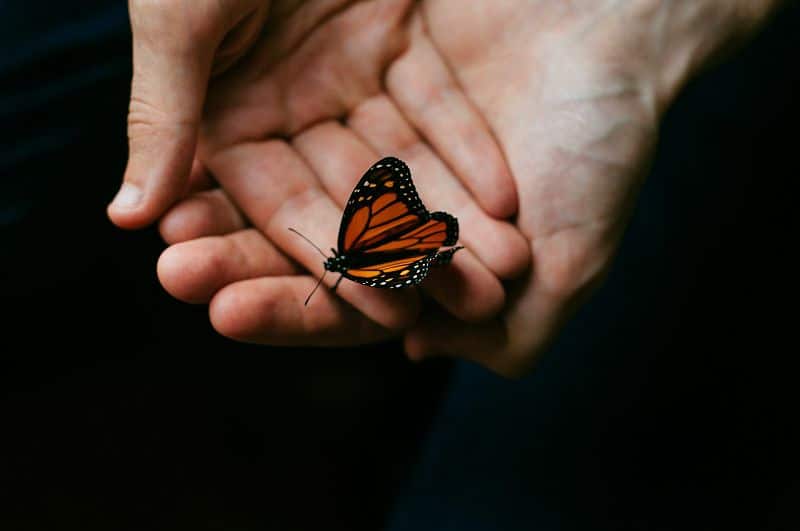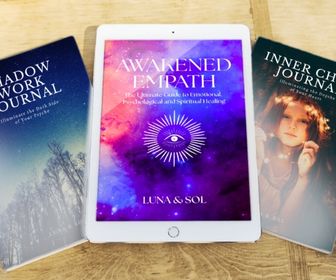It all added up. Sensitivity to loud sounds, harsh light, emotional climates, and over-stimulating situations? I’d just discovered something amazing: I’m a highly sensitive person.
For years, since childhood, I had always believed there was something terribly weird, different, strange, or broken about me.
New situations easily overwhelmed me. Strangers set me on edge. Loud sounds made me jump out of my skin. And even the slightest amount of coffee or alcohol sent me into a tailspin.

Spiritual Wanderer Course:
Find your deepest path and purpose in life as a spiritual wanderer. In this immersive course, you get 3+ hours of content, workbooks, meditations, a premium test, and more!
If you can relate to this level of sensitivity, you might be a highly sensitive person.
The life-changing reality of this label is that it helps you to accept that (1) you’re not crazy, (2) there’s nothing wrong with you, and (3) you’re not alone.
Table of contents
What is a Highly Sensitive Person?

Highly sensitive people (HSPs) are individuals who are genetically predisposed to higher levels of mental, emotional, and physical sensitivity. It is speculated that around 15-20% of our population is wired differently and therefore experiences life in a much more intense way than the average person. HSPs differ from neurotypical individuals in that they are more deeply impacted by sights, sounds, smells, tastes tactile sensations, and emotions.
19 Signs You’re a Highly Sensitive Person

Mother of the discovery, Elaine Aron, has been researching the highly sensitive person for over 20 years now. As such, she has a finely tuned list of traits and behavioral quirks that define the highly sensitive person. I’ve refined some of these traits below. See how many you can relate to:
- I’m aware of subtleties and nuances in different environments, e.g., a tap dripping too loudly, a light bulb burning too brightly, etc.
- I’m easily overwhelmed by the senses. Loud noises, strong smells, tastes, and light affect me negatively, e.g., the pounding music of nightclubs, loud busy freeways, and strong perfumes.
- I need to withdraw from busy days and take a break, or a nap, by myself.
- I’m overly sensitive to pain, e.g. needles, sports injuries, insect stings, etc.
- I become spooked and startled easily.
- I like to take my time, and not overload myself with too many activities as it drains and overwhelms me.
- I prefer to avoid violent TV shows and movies.
- I find it hard to adapt to changes in my life.
- I tend to ruminate and process information deeply.
- I’m empathic. I’m aware of the way people feel around me, and when any slight change occurs in them.
- Emotional environments tend to affect me deeply.
- I’m often perceived as being introverted or shy.
- I’m profoundly moved by nature, the arts or music.
- I tend to be more philosophically and spiritually-orientated.
- I feel unusually strong emotions.
- I avoid and deeply dislike confrontation of any kind.
- I prefer to not be observed when fulfilling tasks: it unsettles me.
- I tend to avoid situations that are too intense or chaotic.
- I seem to process the world at a very deep level.
How many of these qualities did you say “yes” to? I’d love to hear in the comments!
HSPs, Emotional Intensity, and Giftedness

Perhaps one of the defining qualities of being an HSP is how emotionally intense we are.
We feel everything in an intense, passionate, and sometimes devastating way. This intensity often leads us to become artists, visionary leaders, innovators, mentors, healers, and therapists.

Shadow & Light Membership:
⭐️⭐️⭐️⭐️⭐ "Shadow and Light’s weekly guidance always rings true to my heart. Thanks for acknowledging my shadows and inviting my inner light. I always get excited to open the Shadow and Light emails on Sunday!" – Angela M.
But this is a bittersweet trait we share because while it helps us to live life with passion and intensity, it can also isolate us. We may be misunderstood, criticized, underpaid, undervalued, taken for granted, alienated, and generally perceived as being “too much.” We may be classified as neurotic, melodramatic, thin-skinned, or generally finicky – and mistreated because of it.
Yet, despite the many challenges we face, our intensity and giftedness as highly sensitive people also opens the doorway to potentially transcendent and cosmic adventures. For example, many people who are highly sensitive undergo spiritual awakenings and various mystical experiences. Because we are naturally sensitive and more in-tune with the undercurrents of life, we often find ourselves having paradigm-shifting insights about the nature of reality.
In fact, many highly sensitive people are also naturally gifted empaths and old souls who gravitate toward various spiritual pursuits that explore the meaning of life and how to experience spiritual Oneness.
Regardless of whether you’re spiritually-inclined or not, you will have the insatiable need to live authentically and find your true purpose.
Common Myths About the Highly Sensitive Person

As with any neuroatypical group, HSPs deal with their fair share of misguided judgments. Here are the three most common misconceptions about HSPs:
Myth #1: HSPs are introverts
HSPs and introverts both reflect deeply and have rich inner worlds – but not all HSPs are introverted, and vice versa. In fact, as Aron points out, 30% of the total number of highly sensitive people are actually extroverted. It’s a smaller number, but it still shows that introversion does not always equate to being highly sensitive.
Myth #2: Being an HSP is just another word for being shy
Just like introverts, highly sensitive people are often mislabeled as being shy. Although the two share things in common – such as sensitivity to overwhelming social situations – they are not the same thing. While shyness is learned, being a highly sensitive person is not.
Myth #3: “HSP” is a mental disorder
For some, it can be easy to mistake the highly sensitive person as a sufferer of some strange mental condition. Although some HSPs possess separate mental illnesses, being sensitive does not automatically make someone mentally ill. Instead, sensitivity is a trait, a gift even, that some people possess and others don’t. Besides, what pathological mental disorder allows the sufferer to be endowed with such genuine joys as being more empathic, spiritually-orientated, and appreciating the details of life more fully?
How to Survive as an HSP

Due to their sensitive nature, highly sensitive people are prone to idealism and perfectionism. This often stems from deriving our self-worth from the opinion of others, and not valuing ourselves enough. (And the self-worth issues we often develop are due to not being appreciated or understood throughout life.)
Also, being a highly sensitive person can hit you hard if you’re a male. Being a thick-skinned logician is favored as the masculine ideal in the Western world, rather than the sensitive, emotional poet. But whatever difficulties we face as highly sensitive people can be overcome with the ability to reframe the negative into the positive, and actively work to better our environments. Here are some tips:
Would you like to save this?
Your information will never be shared.
1. Learn to value yourself
I learned this the hard way. When we place too much importance on what people say and think about us, we create immense psychological tension and anxiety. We are living to satisfy the thousands of different perspectives of who we “should” be, rather than embracing what we are. In essence, we are creating the exact thing we try to avoid that is detrimental to us: too much internal pressure and chaos. So be nice to yourself. Learn to value your qualities and gifts. Realize that you’re the one and only master over yourself, and no one can have power over you unless you let them.
2. Don’t take things personally
This tip, mentioned by Don Miguel Ruiz in his well-known book The Four Agreements, is essential for mental and emotional happiness.
The highly sensitive person is prone to get hurt easily by other people and their words. Consequently, we frequently find ourselves on-edge in social situations, trying to finely tune our behavior to avoid conflict.
When we take the insults and the moods of other people personally, we blame ourselves. We think that somehow we’re responsible, even deserve their abuse, but we’re not and we don’t.
To overcome the dilemma of taking things personally, try looking beyond your feelings. Use your ability to analyze instead and think to yourself, “I wonder what type of pain this person is suffering to treat me that way?” For example, perhaps they had a really bad day? Perhaps they’re going through a divorce? Perhaps they got triggered? Perhaps they had bad sleep?
When we ask these “why?” questions, we go beyond the initial sting of being mistreated and realize that ultimately, how people treat us is a reflection of them, not us. As Don Miguel Ruiz says, “nothing other people do is because of you.“
3. Embrace solitude
Solitude is not loneliness, instead, it is a chosen form of being alone, rather than an imposed one. When we choose solitude and take mini-retreats from our stimulating days, we give ourselves the gift of re-cooperation. As highly sensitive people, we need to be in-tune with our minds and bodies and the warning signs of burnout, such as irritability and physical exhaustion. So take a bit of alone time to renew yourself.
4. Investigate, identify, and act upon your sensitivity triggers
Wouldn’t life be a whole lot easier if we managed to resourcefully alter or intelligently negotiate our way around the stresses and stimulations that come our way? Of course, we can’t plan everything, but for the stresses currently existing in our lives, we can work to plan ahead and alleviate the incoming tension.
As an HSP, I struggled with this, stoically putting up with the extreme anxiety I felt at work until I realized that it was weakening my health. No, I didn’t do something drastic like quit my job, but I did decide to plan ahead and practice self-hypnosis every time I had to go to work, to prepare myself for the day. I still do.
As an HSP, you may be suffering from the same problem I did: a self-sacrificial acceptance of your less-than-healthy response to a situation in life. If you find yourself daily frazzled, try identifying what makes you so stressed out and think about what you can do to actively make your life easier to live. Life wasn’t meant to be bared with gritted teeth.
5 Ways to Stop Emotional Snowballing as a Highly Sensitive Person

Your heart pounds, you begin to tremble, your chest constricts, pain shoots through your core, your mind blurs … and all this, simply as a response to a threat, insult or even a simple tone of voice.
Highly sensitive people frequently live life on the brink of emotional snowballing, a term I use to describe a situation where emotions get out of control and quickly become out of proportion to the situation at hand.
Just think of a small snowball rolling down a very steep hill – it becomes larger and larger and rolls faster and faster very quickly. For many highly sensitive people, this emotional turbulence is a fact of life.
But why? As Elaine Aron pointed out in her book The Highly Sensitive Person, “most of us are deeply affected by other people’s moods and emotions.” In fact, you could say that most highly sensitive people are simply excellent social chameleons to the emotional landscapes around them.
This can be good news if everything is peachy bliss, but many times, highly sensitive people find themselves absorbing the poisonous negativity around them. You could say that the highly sensitive person’s problem is taking things too personally. But it’s much more than that. The highly sensitive person is deeply affected by any highly stimulating situation, whether physical, mental and emotional.

Spiritual Awakening Bundle:
Find your spiritual purpose. Deepen your self-understanding. Learn to embrace who you are. Let us show you how …
In a sense, you could say they feel everything at a more extreme level than the non-HSP person. While this can make life a lot more profound for highly sensitive people, it can also make interpersonal relations very bitter indeed.
Below you will find four techniques I have found useful in preventing emotional snowballing. I’m a highly sensitive person myself and hope these will help quell the tidal waves of emotion when they roll your way:
1. Seek out a quiet, empty spot to cool down
As I mentioned before, highly sensitive people suffer a lot at the hands of hyper-arousing and stimulating situations. The best thing to do when you become aware of the symptoms of emotional stress is to remove yourself from the situation. Excuse yourself, or simply walk away from the person or people that are causing you harm and find a deserted, empty place.
I say deserted and empty because the least stimulating, the better. You need to make time to re-cooperate and soften the violent sensations inside of you. I find that the bathroom is usually the best place to go, especially when the lights are out and everything is muted and dim.
2. Focus on something that made you happy today
If nothing made you happy today, try the past week, or you could think about the best thing that ever happened to you. I find that focusing on something positive helps break the cycle of negative emotions that begin to quickly increase inside. It also helps to remind you that life wasn’t always as painful as it seems in the present moment, and helps give you perspective.
If you have had a bad run-in with a specific person in particular, you can also try thinking of the last time you enjoyed being in their company. Did they make you laugh, did you share something nice together, were you excited to talk to them? This works especially well with family members and close friends who have upset you.
It’s good to remember that everyone has bad days once in a while, and they aren’t necessarily angry at you – in fact, usually, they aren’t. They are simply reacting to their own bad feelings and taking it out on you. Once again, this technique of focusing on a past positive experience works well after you’ve sought out a quiet and empty spot to re-cooperate.
3. Listen to, or watch something upbeat
The biggest mistake that I made as a highly sensitive person was to listen to melancholic, dark music when I felt emotionally strained. Although it’s nice to feel as though others can relate to the way you feel through their music, this is not always a healthy way to deal with emotional turmoil.
If you’re primarily an auditory learner like me, listening to happy music is one of the best ways to stop emotional snowballing. I know it’s cliche, but try listening to “Don’t Worry, Be Happy” by Bob McFerrin for starters! (It’s bound to make you smile!) If you’re primarily a visual learner however, the next best alternative is to watch a comedic movie that will allow you to relax and break out of the negative cycles of emotion. Have a list of comedy movies at hand, just so you don’t lose time frantically scavenging for one. (By the way, if you want to find out what kind of learner you are, take our Visual, Auditory, or Kinesthetic test.)
4. Ground and orient yourself to your surroundings
When you feel like you’re spiraling out of control (i.e., feeling overwhelmed, inundated, panicky, grief-stricken) find something beautiful, calming, or pleasant in your environment to focus on. This technique is often used in somatic psychotherapy for trauma sufferers and works wonders with highly sensitive people.
For example, you may choose to focus on a patch of sunlight on the ground, a vase of flowers in the distance, a child running and laughing, the calming color of the wallpaper, or anything else that brings you a burst of delight.
Orienting to something safe and pleasant in your environment is a powerful grounding technique that you can use anytime, anywhere.
5. Remember that this too will pass

This philosophic approach to preventing emotional snowballing for the highly sensitive person is a powerful way to transcend your emotional strife and look at life with a birds-eye perspective.
Think of everything good and bad that has ever happened to you. All of it has passed by and has been replaced with something different: the good with the bad, and the bad with the good.
Life is a constant flux; a wax and wane of good and bad. If everything was always good, we would find life boring and we’d take it for granted. In this way, the bad moments in our lives can even be seen as necessary and beneficial – they provide a contrast for the good so we can appreciate it even more fully.
So just remember: when you are close to an emotional snowball, remember that this too will pass. Like everything in your past, it will perish and be replaced with something else.
Are you a highly sensitive person? Do you have anything to add to this article? If so, please do below.
Also, you may like to take our Highly Sensitive Person (HSP) Test.
Three paths to inner transformation – here’s how I can help you go deeper:
1. The Spiritual Wanderer Course: Are you feeling lost, adrift, and unsure of your life's purpose? Gain clarity, focus, and direction on your inner path by uncovering the five archetypes of awakening within you. Learn how to navigate the highs and lows of your inner journey and chart your unique path with 3+ hours of audio-visual content, workbooks, meditations, and a premium test.
2. Shadow & Light Membership: Do you crave consistent support on your spiritual quest? Receive weekly intuitive guidance and learn to embrace your whole self, including your shadow side. Cultivate deeper self-love with our affordable, personalized support.
3. Spiritual Awakening Bundle: Ready to embark on a profound soul-searching adventure? Dive into our collection of essential transformative resources! Explore five illuminating eBooks and seven in-depth journals, plus unlock two special bonuses to empower your spiritual growth.







Last year on October 1st, 2018, my entire life and being began to unravel. I attempted to take my life on October 18 and spent time in the hospital and in outpatient therapy. I attempted to take my life again on April 8th and 9th 2019 and again spent time in intensive therapy. I am once again wanting to and am now out of work for the third time and involved in intensive therapy. I am also highly sensitive and my life is complicated by six autoimmune disorders and constant physical pain, in addition to three relationships that I lost back-to-back within this years time-frame. I actually found LonerWolf at the very beginning of my unraveling last year and have purchased every book authored by both of you. I am desperately trying to figure myself out and although I have procrastinated actually doing anything with these books, I have them and plan to use them at some point. I read almost all of your newsletters and self help guides and I so appreciate them because I don’t necessarily believe in traditional psychology, but I truly relate to the language that you present in your writing. It has helped me quite a bit. I am glad I found LonerWolf. But this article struck me because I too can’t handle immense situations unless I expect to encounter them- for example- I can handle a violent show or movie if I know that’s what it’s about- most of the time. If my telephone rings, I jump. I jump while driving at nite if car lights come out of nowhere. My youngest son experiences intense anxiety and when he experiences it I have to escape to my bedroom as I simply cannot handle it. When my grandson screams with joy, I again escape to my bedroom. I can’t seem to handle any intensity what-so-ever, especially now that I am working hard at trying to recover from the trauma of this past year. It has been extremely difficult. But I do so look forward to your articles and I save them as references so I can revisit them- I feel it helps me understand how to find my purpose and for that I am truly grateful. I know how much work I have to do in order to heal but I avoid it because that in itself is over stimulating. But I try hard to be a “normal” person just to get through each day and to be a functioning member of society and in caring for my family and maintaining my career. I basically experience everything on the list you provided. So I want to say thank you for providing work in a non mainstream way, because there are so many of us that don’t fit the standards ♥️
I would like to add some insight to being a sensitive. When I was very young I was a sensitive ,as all was overwhelming and misunderstood about how to handle things. Now after many years of chakra and energy work including Qui Kung and even Dim Mok for physical as well as energy control I can say the advantages are endless and useful. So know it can get so much better if you can perfect your skills. I am heyoka/windigo Empath/seer and you could be even more. I love all that is and all that is not.lolly
Greetings dear fellow wildlings
As I am still fairly new on this adventure as a fellow Loner wolf, Solitude and Alone time is a major key for me to feel at one with myself. I remember one day I went to a food store to do my weekly shopping. My mother was with me, I started out okay right….. People were rushing around the shop eg… Workers, other shoppers etc…. I started to panic….. I put everything back on the shelves, put the trolley back and just walked out. It was all just way too much. Another one I experience is that I take other people’s opinion of me very seriously. Because like…… I try my best to be kind, caring, thoughtful, sharing, polite and courteous… Etc.. I know, I know…. Maybe I could be trying too hard or maybe even be called a people pleaser. The point I am trying to make is like…… If I feel I have let someone down or made them speak harshly about me….. It really hurts me very deeply and effects my wellbeing. Like I don’t want to hurt anyone….. Either emotionally, mentally, spiritually.
Another thing I have to deal with trying not to be exposed to too much excessive sunlight. Out here in our beautiful and harsh outback, summer heat really has a dramatic impact on me and I am constantly indoors.
I don’t like heavy rock and roll music or gang rappers music. I prefer stuff like
Sacred Earth, Enigma, Faun etc…..
Anyway….. I hope I didn’t offend anyone. I know I talk about God a lot.
Sorry about that. I have been a Seeker for a quite a number of years. Trying to find my true, authentic self.
As always Luna and Sol…. Terrific article and topic for discussion.
Love to you both and also the sisters and brothers that are sharing in this sacred journey.
Much Love to you all….
Luke
Luke, there is one thing you need to know mate: you are perfect just being you. The only pity I have is that so many people are not like most of the people who visit this site so that is why most people here have difficulty relating to non- highly sensitive people. But then, the converse is probably also true in that most here are perceived as ‘weird’ or different by others. The solution lies in all if us accepting ourselves as we are and trying to bridge the gap with those who don’t get us. Hard work, but at times, well worth it.
Thank you so much for sharing this as it is so interesting. I have had PTSD for 54 years as a result of my childhood experiences. I did not know I had it until I went to therapy for the first time a year and a half ago. My identity had been removed, I learned to be invisible and I have been on high alert survival mode ever since. I thought I was doing absolutely fine until I met my Twin Flame who triggered so many emotions and blew up my world that I knew I needed help. This experience also awakened me to follow a more conscious spiritual path for which I am grateful. I have focused on my inner work for purging and healing and with mindfulness and meditation, I have now been able to calm my nervous system. As I discover more about the real me I have become very aware of how sensitive I still am now and yes, all 19 apply to me. However, I am also aware that the new me has to find my own authentic voice devoid of ‘people-pleasing’ and to let others know how they are making me feel using compassion and diplomacy. It is work in progress but I am finding that often what I am feeling or thinking is not always intentional and encourages others to rephrase or clarify what they are saying. In a more subtle way, I like to think that I am also giving the message that it’s not okay to dump your rubbish on me just because I am unlikely to bite back. This supports my self-worth development and stepping out of my comfort zone. I am curious to know if anger is not an emotion available to HSP people, or uncommon? I am a gentle soul and I have never been angry even though I may have had plenty to be angry about. Is that the empath in me that is understanding why people do what they do? Keep up the amazing work you do, it is so helpful. Thank you x
Thank you for sharing Shelley. <3
Good on you for reaching out for help and going through this healing process. It's arduous but worth it; worth reclaiming your innate strength, solid sense of self, and gifts.
As for anger, it's normal for everyone to experience it, including HSPs. Absence of anger is generally due to trauma (i.e., it was unsafe for us to express it so it had to be buried/repressed). But it's not that the anger disappears, it just gets expressed in other indirect ways such as stubbornness, passive-aggression, and self-destructive behavior. It's normal to get intensely rattled by anger as a HSP which is why it's important to learn how to ground ourselves.
I hope that helps. :)
Highly Sensitive Souls/Individuals that have other official diagnosis of a part of the autism spectrum of Literalism, along with a non traditional upbringing in Elitist Private Faculties that taught High End Discipline; that enforced visuals to contain control, also gave the worst and highest amount of PTSD on ‘anyone’s head’ let alone being born of significant difference ~ all
due to their [the proposed gaurdians] operational teachings. This usually places ‘these sensitive beings’ on a Flight Alert always; and that is due to the amount that can and does get taken away from others, especially if the individual is in High Demand to complete complex works for those in the highest positions, even though not wanted, the threat always outweighs and this is the shame of many who abuse. Simply knowing one’s position doesn’t save face, even if practiced well for as soon as a spec of privacy comes then the ‘after effects’ really do harm ~ and more so if also dealing with a life long critical medical condition of rarity. There are a few extra differences between real Sensitive Souls; if I didn’t form an extended version of meditation I would not be here, that goes for respecting myself Firmly , as I haven’t been due to being born with serious health problems from birth, not treated due to ‘the upbringing of an enormous difference ‘, and always knowing and doing one’s best still doesn’t get to a balance scale , year after year::: even if one does not consider themselves ‘a shy’ sort. *Discipline training meant that one was never allowed to and in had to portray strength front on, even if it meant more injuries of all”! Often ‘beings’ in this category have had their actual ID kept away from them their whole lives and had to be careful about every step just to make sure that being without a roof, or food would never happen again. No matter how bad others behaviours are though, the true Sensitive of depth continues to risk to possibly assist if trouble is seen, and the right reaction to save the situation. These are areas to also concentrate on when in overwhelming amounts of demands are occurring; along with meditation and definitely total solitude… this means all the demonic arrangements of the new ordered world with the equipments /devices that are the Individuals ID in the now climate, requires shutting off. Sensitive Deep Beings require NOT to involve themselves in damaging social media, like Face-book priority one, and its associates such as Twitter [the name says enough], and Instagram, these few will and do damage To All good S/Souls of depth … once realized that they don’t need to be apart of one’s existence, even if the world is pushing otherwise, it then comes down to research, this gives the amount of good answers to assist ; however researching on google anything” is not where one goes to receive and get better truths… many other search engines are worth researching into and on.
I agree, staying off social media has been essential for me. I go on for work, but stay away when it comes to pleasure. No matter how exciting it is, it’s not worth the over-stimulation, toxic comparison, stress, etc.
Several years ago, a bright young lady told me about that book, and that I should read it to better understand me.
It was “right on” for me, and I’ve been in therapy for 20 years treating the PTSD from Vietnam. You two are a blessing in my life. You join the ranks of my other teachers: Rumi, Krishnamurti, Ram Dass, Hari Dass, Tagore,
Yogananda, among the many yogis, lamas, and mystics.
Thank you, the pale wolf, we’re honored to help. <3
I loved this article!! Over the past few years I realized I am an HSP and adopting new things/thought processes have helped me accept who I am and that’s it’s ok to be different. I no longer allow anyone to make me feel bad for being who I am. I have also learned new ways to cope with my gifts and that I don’t care if the world understands me or not. I am light, I am wonderful, I am love!!! thank you so much for the work you do and knowing that I am part of a wonderful tribe of people!! hugs & love
Good on you, Nessia!
I totally relate to 17 out of the 19.
It helps to have a guide to go by when things get chaotic. Thanks a bunch.
I’m happy this article has helped you, Sandra. <3
This article really put a lot into perspective for me. I always feel really bad when others tell me that I am really sensitive. And I always wonder what is wrong with me? Why do I feel offense or anger so strongly? This put a lot into perspective.
I’m glad to hear that, Britne :)